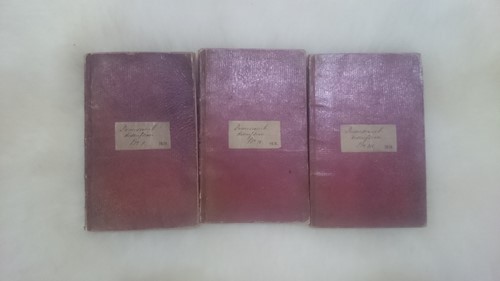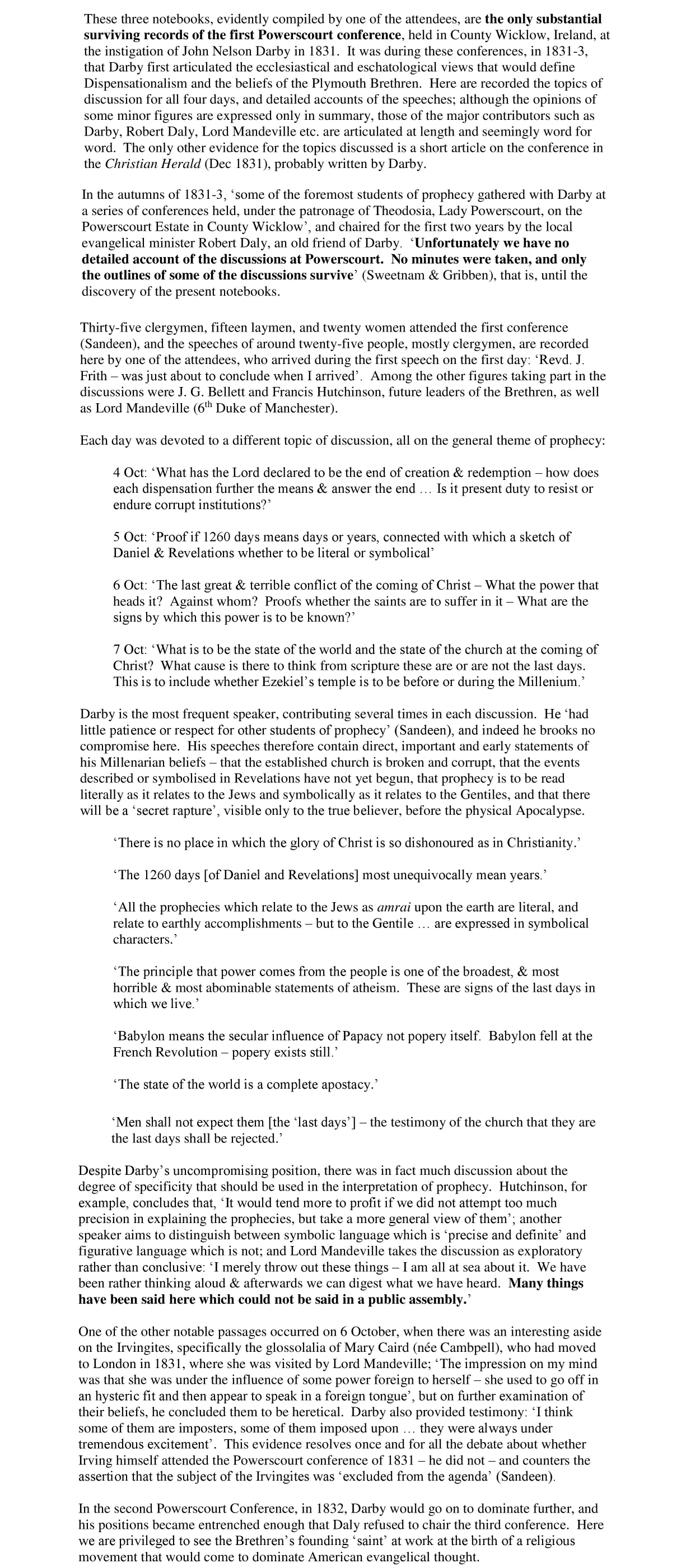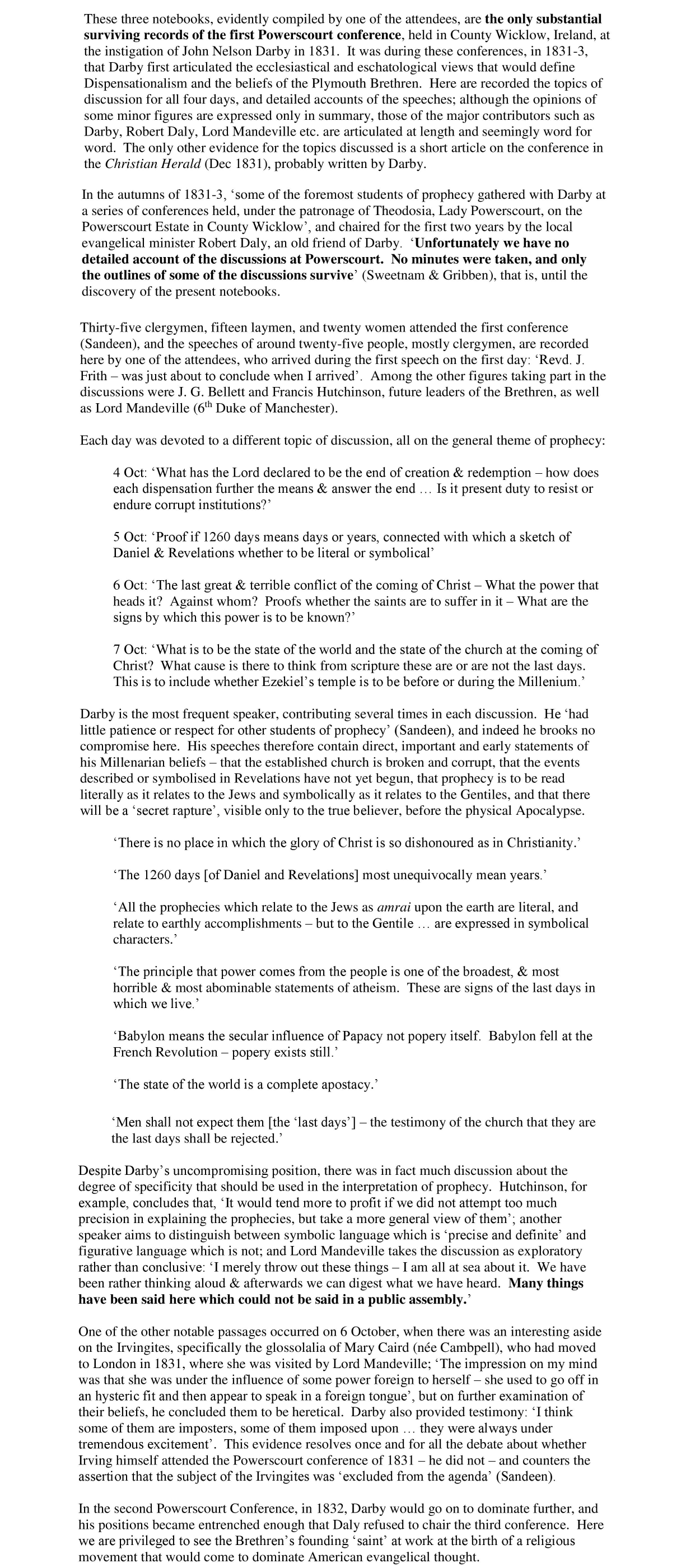Tuesday November 10, 2015
Fascinating Acquisition! - Manuscript Notebooks of the 1831 Powerscourt Conference

These three notebooks I acquired last week are my new my new pride and joy! They are handwritten notes of the 1831 Powerscourt conference; these conferences (under God's hand) played a key role in the development of modern Dispensationalism as well as what we know as the 'Brethren Movement'. Almost nothing has been known of the actual discussions held until now, but these little books that have been hidden away for 180 years give a fascinating insight into what took place. For anyone who follows 'Brethren History', I think it could be one of the most interesting discoveries for some time.
It did cost the price of a small house in some places to get hold of them, so I am not sure exactly what I intend to do with them yet, but I will put some of it at least on the website, hopefully in the near future, and anyone particularly keen to see the rest can get in touch. In the mean time I would like to collect together all the information that is currently known about the Powerscourt conferences; there isn't much, but I can recall reading comments here and there in various books over the years that gave little insights. Please add a comment if you know of anything.
Here are some extracts from the bookseller's description to start with,

